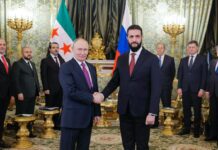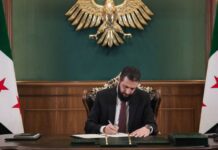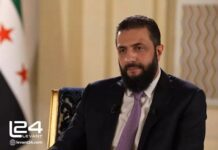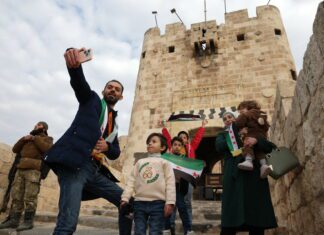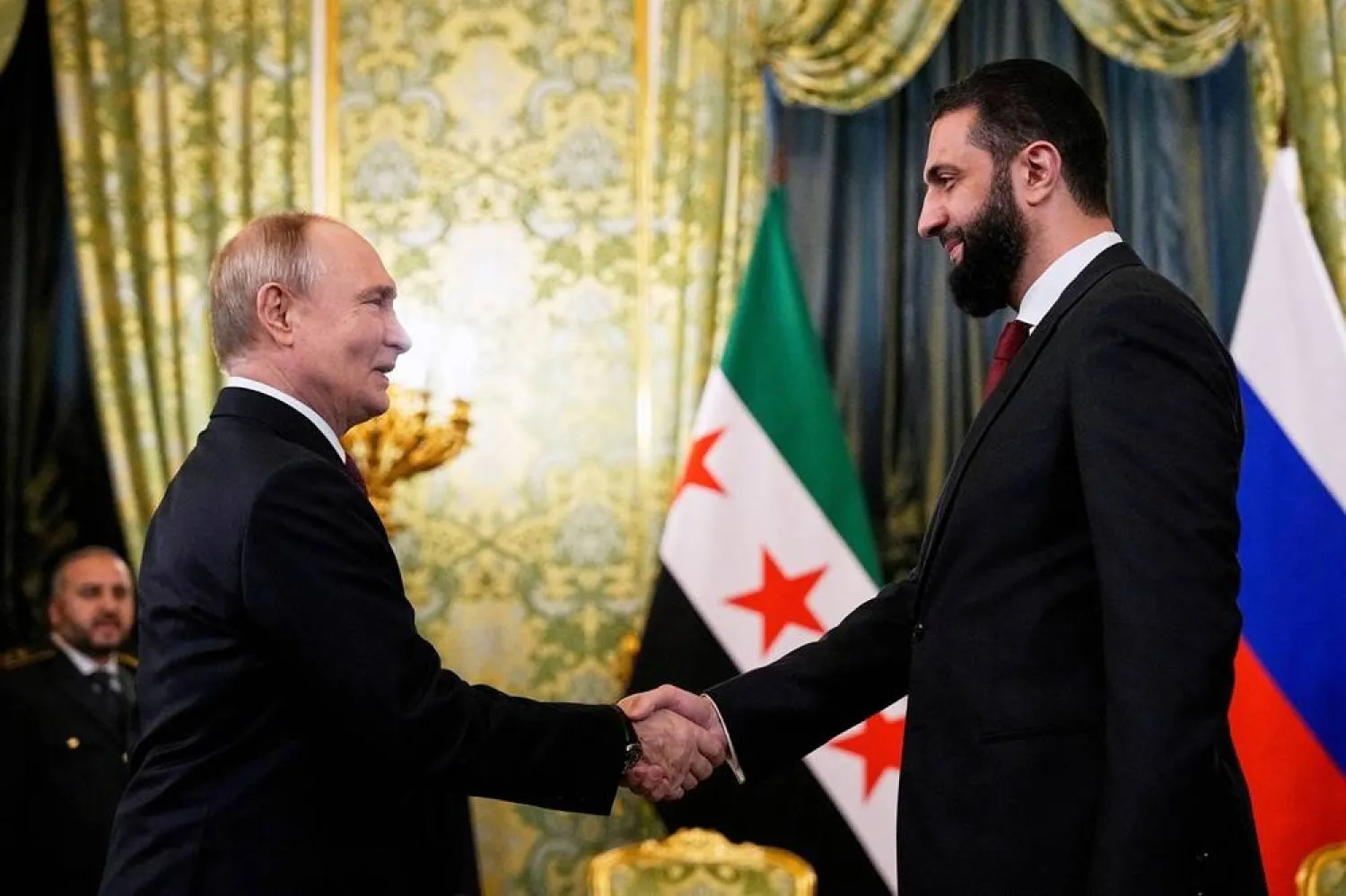
Syrian President Ahmad al-Sharaa’s first official visit to Moscow since taking office marked a turning point in Damascus’ foreign policy, as the new Syrian leadership seeks to rebuild ties with Russia while demanding accountability for the past.
The talks between Sharaa and Russian President Vladimir Putin October 15 covered three major issues: the extradition of ousted leader Bashar al-Assad, the future of Russian military bases in Syria, and Moscow’s potential role as mediator between Syria and Israel, according to Yedioth Ahronoth.
In remarks at the Kremlin, Sharaa said, “We respect all previous agreements with Russia and recognize the historical ties between our nations,” but emphasized the need to “redefine these relations to ensure the independence of Syrian decision-making.” He called for an end to Syria’s international isolation and reiterated his request that Moscow hand over Assad, who fled to Russia nine months ago.
A senior Syrian diplomat, Ashhad Salibi, confirmed to Al-Ikhbariyah that Sharaa “demanded, clearly and repeatedly,” Assad’s extradition. He said the Russian side “expressed understanding toward achieving transitional justice in Syria,” though Putin reportedly told aides in closed-door talks that he would not hand Assad over, journalist Ibrahim Hamidi reported.
Balancing Power and Partnership
The future of Russia’s military presence in Syria—particularly at the Hmeimim Air Base near Latakia and the naval facility in Tartus—remains a sensitive issue. Russian Foreign Minister Sergei Lavrov told Sputnik that “everything was discussed,” including the legal and financial framework governing these bases.
Syrian officials have proposed that control over the facilities eventually return to Syrian forces, in exchange for continued Russian investment in reconstruction and defense cooperation. Deputy Prime Minister Alexander Novak said Moscow was ready to assist in rebuilding infrastructure and maintaining operations in Syria’s oil and energy sectors.
Analysts in Moscow’s Kommersant and Vedomosti newspapers described the meeting as Russia’s formal recognition of Syria’s new leadership. Yet they noted that the fall of Assad dealt a blow to Moscow’s regional influence. “Syria remains within the Russian orbit,” Vedomosti wrote, “but the balance of power has changed.”
Rebuilding Relations Under New Terms
Kremlin spokesman Dmitry Peskov said the meeting reaffirmed that “relations between the two countries have always been friendly and guided by the interests of the Syrian people.” Sharaa’s delegation, which included the ministers of defense, foreign affairs, and intelligence head demonstrated Damascus’ intent to “re-crystalize Syrian foreign policy on the basis of national interest,” Salibi said.
The visit concluded with agreements to form a joint intergovernmental committee on trade and humanitarian aid, and negotiate arms and wheat supply deals. Syrian Finance Minister Muhammad Barnia told RIA Novosti that Syria was ready to offer Russia “tremendous opportunities” in reconstruction projects.
While Russia seeks to maintain its influence in the Mediterranean, Syria’s leadership insists that all cooperation must align with its sovereignty and legal order. “Achieving transitional justice and rebuilding our relations on equal footing,” Salibi said, “are essential for Syria’s stability and for restoring trust with our partners.”

